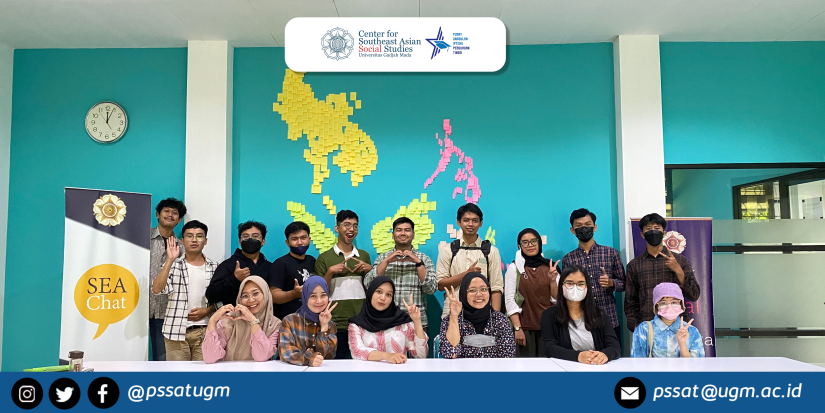
Tuesday (17/01), the Center for Southeast Asian Social Studies (CESASS) held an academic discussion forum, 36th Southeast Asia Chat (SEACHAT). On this occasion, a graduate of the Department of Sociology Universitas Gadjah Mada, Ilham Ramadhan D. Arifin, presented his findings about sugar commodities in the Dutch East Indies era on Caribbean and Java islands. To open his presentation, Ilham played a video about the development of sugar cane during the Dutch East Indies era when sugar became the main global commodity from 17th until 19th century.
The two biggest sugar-producing islands in the world, Caribbean and Java, have experienced vast development which also led to European colonialism. While explaining how sugar production may lead to colonialism, the presenter showed comparative data on the production of coffee, tobacco, and sugar in both Cuba and Java between the year 1700-1900. The data showed that sugar production in those two islands was much higher and more massive than coffee and tobacco.
However, although the production of sugar cane in Caribbean and Java was colonized by Europe, Ilham highlighted that those two islands underwent different production mechanisms. In the Caribbean island, slavery system was enforced, meaning the workers have no guarantee of when they would be able to leave the sugar industry. On the other hand, the sugar cane industry in Java was identical to labor in which farmers that produce other commodities were forced to grow sugarcane and other European export commodities.
At the end of his presentation about sugar cane industry, Ilham presented the reflection and relevance of European colonialism with the mass production of sugar. Citing Matthew Parker, the sugar commodity in the Dutch East Indies era is similar to today’s oil industry which globally reaches far into political, societal, and economic aspects. When asked by a participant about the fate of today’s sugar factory, bearing the fact that sugar is not a multisectoral commodity, Ilham explained that there is a sugar factory that currently became a cultural heritage of UNESCO. However, the majority of factories have been permanently dismissed.
Before concluding the whole discussion, the presenter said that collective memories of the sugar industry legacy in Indonesia are most likely to be associated with mystical things. Since during that period, numerous workers died from forced cultivation. Furthermore, the study of the sugar industry in the Dutch East Indies era is still very possible to be studied further with more specific disciplines to obtain numerous significant findings.
By: Yumna Amalia Maghfiroh
